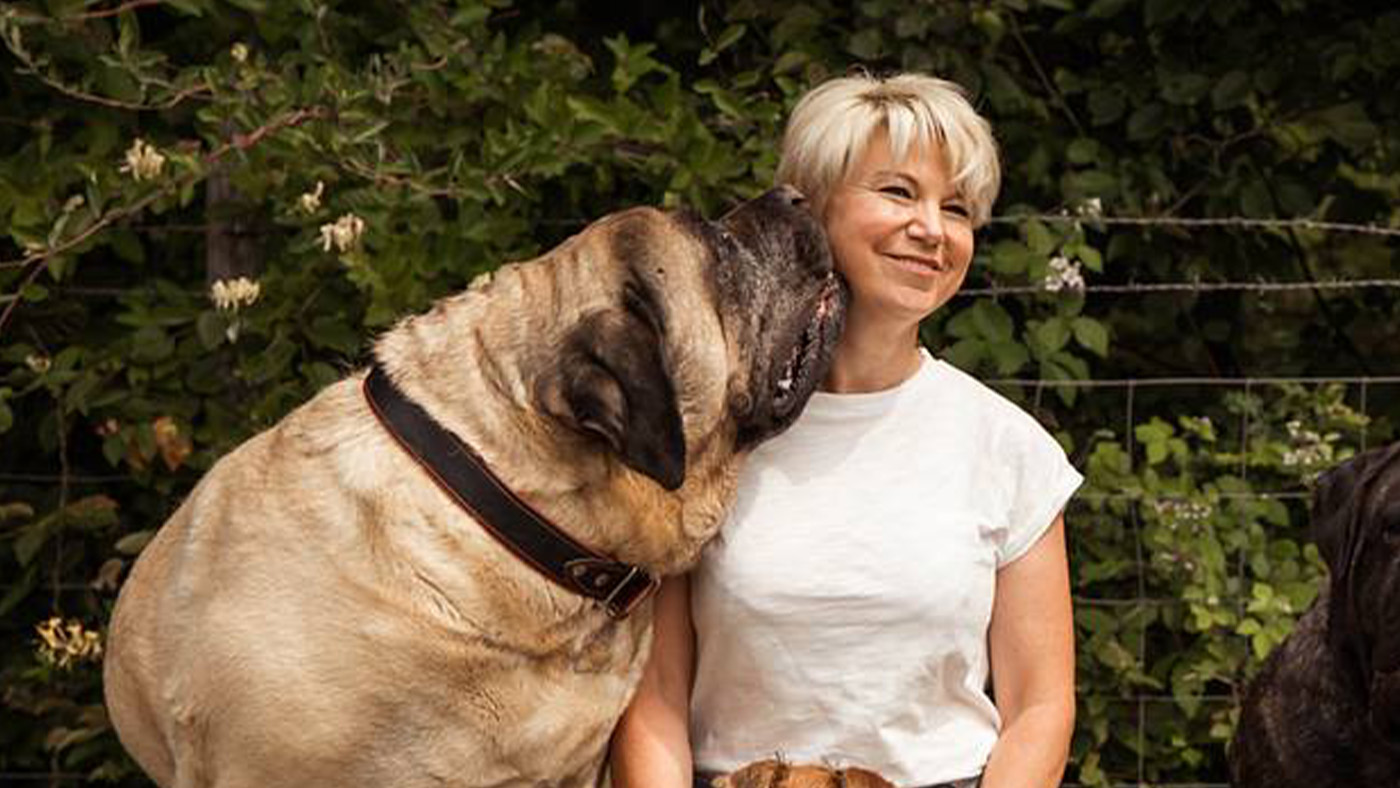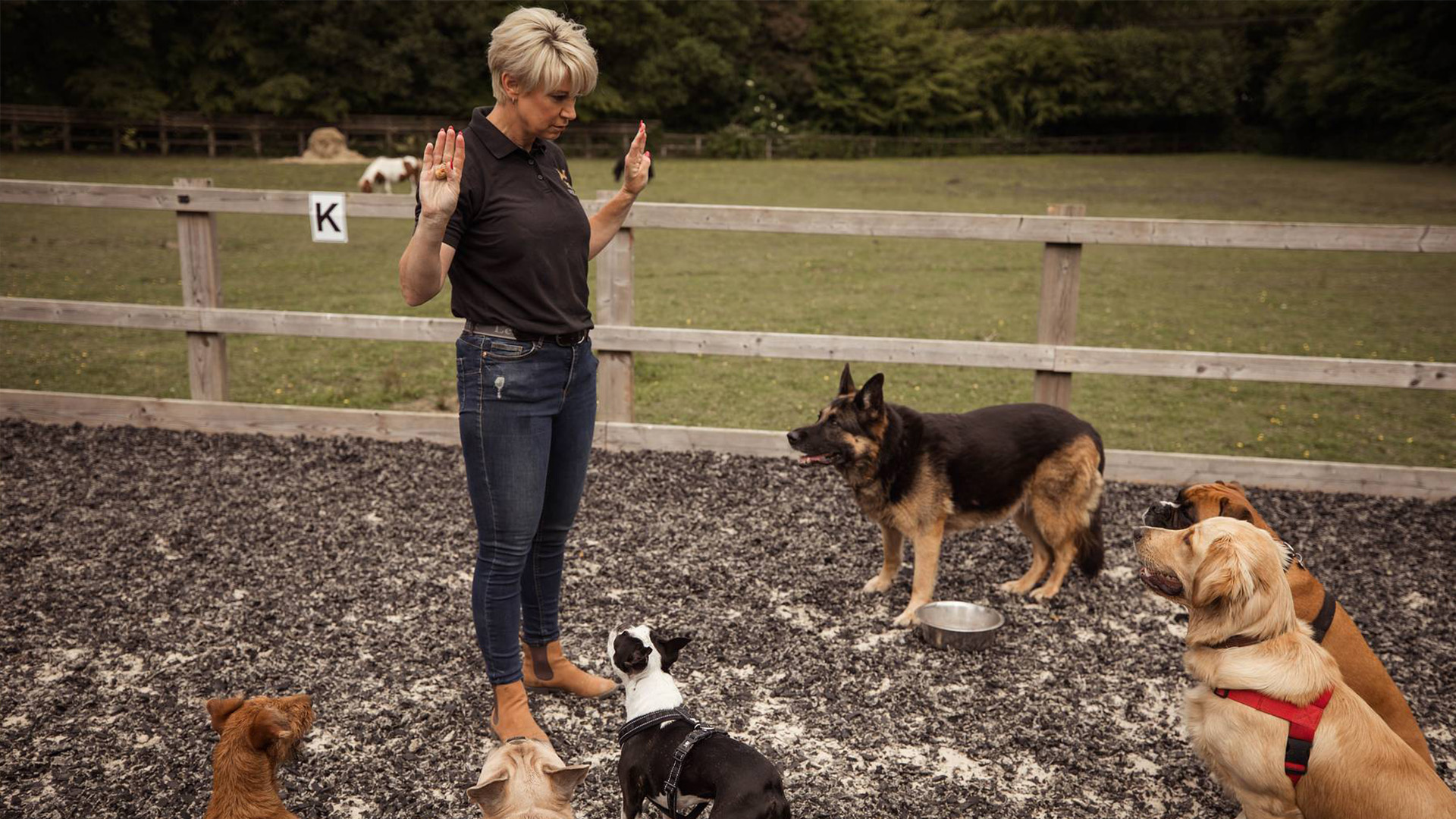How to choose a dog name – and what’s actually important
There are lots of things you could consider when choosing a dog’s name, but this is what a trainer suggests you think about

Get the best advice, tips and top tech for your beloved Pets
You are now subscribed
Your newsletter sign-up was successful
If you’re stuck on how to choose a dog name, chances are you might be over-thinking it. Firstly, dogs can learn a thousand words so, whatever name you choose, that is not something to worry about.
I have more than 20 years’ experience working with dogs, and am a fully qualified dog behaviorist, rehabilitator and trainer. I know that choosing a name is one of the most exciting and personal parts of bringing home a new puppy to join your family.
Here’s what I think you really need to consider when choosing a dog’s name...
1. You need to like the name
Naming your dog is a totally personal task. It is not for anyone to question or disagree as it is your dog, and it will live with you for hopefully very many years. In my opinion, all that matters is that you like it, and your dog responds to it.
You might want to name your dog after a favourite character, a beloved place, or a term that holds special meaning to you and your family.
For me personally I love to give my dogs old-fashioned human names. I have three English Mastiffs called Mavis, Neville and Gloria, an Irish Terrier named Gladys and Derek the miniature dachshund.
2. Your pup’s personality
Think about the personality and physical characteristics of your dog. A playful and energetic puppy might suit a name like "Paddy" or "Zippy," while a more regal or calmer dog could be called "Duchess" or "Maximus".
Get the best advice, tips and top tech for your beloved Pets
3. The length of the name
Another factor to consider is the length of the name. Shorter names – typically one or two syllables – are easier for dogs to recognize and for you to call out.
I have a long name if my dogs have been up to no good so Neville, for example, becomes “Nevelton Mary”. I added the Mary is because he is such a wuss and a big, daft 110kg lump of love.
4. The sound at the end of the name
There was an old saying that dogs could only respond – or would respond better – if their names ended in an E, Y or S. This is not strictly true, although there is some merit to it.
These sound these letters make changes your facial expression, making your mouth turn up to a smile and your eyes crinkle and soften. Your dog reads this body language as a positive, which is what makes the response from them that much quicker.

5. Words the name might sound like
One idea that has been passed about over the years is that you should choose a name that is easy to pronounce and remember. I would suggest avoiding names that sound similar to common commands like "sit," "stay," or "no," as this could confuse your dog during training.
I once had a dog in my class that thought he was called Sit! The owner would constantly repeating the “sit” command, and it drove me mad – I was always telling him to stop saying it so fast without giving the dog time to respond.
As soon as I talked about an exercise and said the word “sit” he would immediately lift his head and look at me for the next command! He never paid any attention to his real name, so we renamed him Sid as it was similar and got the owner to stop the bad habit!
6. Remember they’ll end up with many nicknames
I am yet to meet any owner of a dog that doesn’t have at least a dozen nicknames – mine included. I’m well known for giving nicknames to client’s dogs too, it’s just something very innate in me and most owners.
My dogs all have about 10 nicknames each that they respond to and if they are all out together I shout “Mastiffs” for the big ones and “Ninjas” for the little ones – they all respond perfectly.
My friend had a springer spaniel called Ollie; but I always called him Norman because he did stupid things. Where I originate from, if you did something daft, you were “a right Norman”.
The name caught on, and soon the local groomers and vets were calling for Norman in the waiting room!
My final thoughts...
Ultimately, the perfect name for your dog is one that resonates with both of you and enhances the bond you share, however many names you give them. Practice it and reward your dog when they acknowledge it.
Read next: Girl dog names or boy dog names for plenty of ideas to help you choose!
Edited by Georgia Guerin.
This feature was last updated in May 2025 by Bethany Stone.

Helen Masters is a fully qualified dog behaviorist, rehabilitator and trainer, and has more than 20 years’ experience working with dogs. She is a Kennel Club Accredited Trainer, and has a wide range of canine and animal qualifications and affiliations.
Helen also breeds mastiffs and has been a regular attendee at Crufts with her dog Neville. In her spare time, Helen also writes all about dogs for PetsRadar’s sister title, Horse & Hound.
